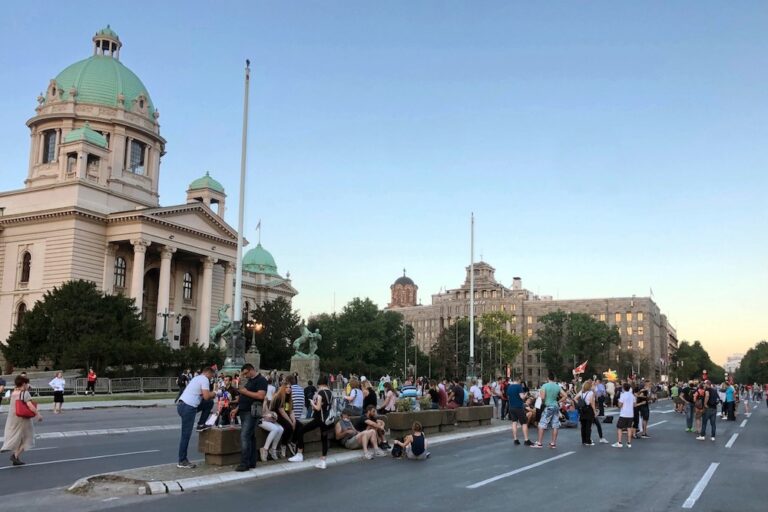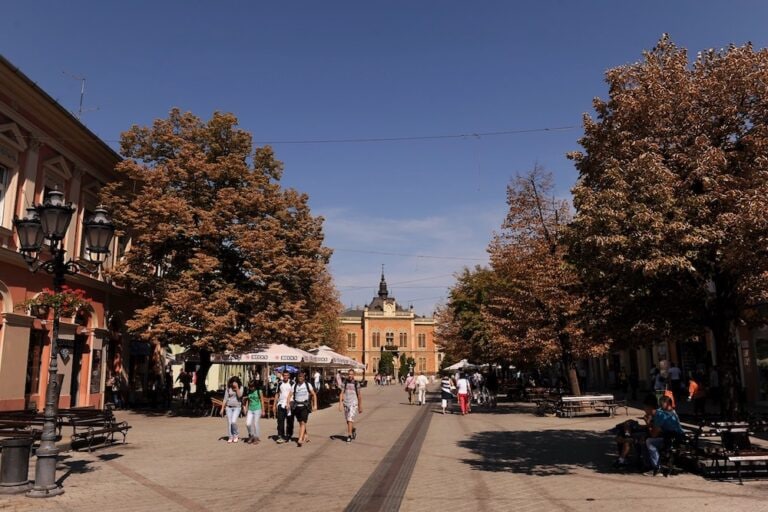The following is an ARTICLE 19 statement on the UNMIK Regulation 2000/4 of 9 February 2000 on incitement to hatred: STATEMENT ON UNMIK REGULATION NO. 2000/4 ON THE PROHIBITION AGAINST INCITING TO NATIONAL, RACIAL, RELIGIOUS OR ETHNIC HATRED, DISCORD OR INTOLERANCE On 9 February 2000, the UN Interim Administrative Mission in Kosovo (UNMIK) passed Regulation […]
The following is an ARTICLE 19 statement on the UNMIK Regulation 2000/4 of 9 February 2000 on incitement to hatred:
STATEMENT ON UNMIK REGULATION NO. 2000/4 ON THE PROHIBITION AGAINST INCITING TO NATIONAL, RACIAL, RELIGIOUS OR ETHNIC HATRED, DISCORD OR INTOLERANCE
On 9 February 2000, the UN Interim Administrative Mission in Kosovo (UNMIK) passed Regulation No. 2000/4 On the Prohibition Against Inciting to National, Racial, Religious or Ethnic Hatred, Discord or Intolerance. As the title implies, this Regulation makes it a criminal act, subject to imprisonment of up to ten years depending on the circumstances, to publicly incite or spread hatred, discord or intolerance which is likely to disturb public order.
ARTICLE 19 is concerned that this Regulation goes beyond the scope of restrictions on freedom of expression permitted under international law; that the judicial system in place in Kosovo is inadequate to apply such a sensitive Regulation, even were it legitimate, with balance and impartiality; and that it is an inappropriate solution to the very complex problem of racism and intolerance in Kosovo. In particular:
* Article 20(2) of the International Covenant on Civil and Political Rights provides that “any advocacy of national, racial or religious hatred that constitutes incitement to discrimination, hostility or violence” shall be prohibited. The UNMIK Regulation goes well beyond this standard inasmuch as it does not require incitement, targeting anyone who “publicly incites or publicly spreads hatred, discord or intolerance” (emphasis added). It also uses relatively broad terms, in particular “intolerance”.
* Problems with the breadth of this provision are compounded by its inherent lack of clarity. Article 20 of the ICCPR is couched in much clearer terms and has also benefited from authoritative interpretation by an independent body, the UN Human Rights Committee. ARTICLE 19 is concerned that the authorities currently in place in Kosovo lack the capacity to interpret and apply this Regulation impartially and fairly, without violating the right to freedom of expression. A recent report by the Bar Human Rights Committee of England and Wales, Kosova 2000: Justice, not Revenge, is harshly critical of the judicial system in Kosovo, referring to “a plethora of cases in which blatant judicial bias and partiality have been displayed.” Of particular relevance here is the complete absence, as of December 1999, of active Serbian judges within the Kosovan judiciary.
* ARTICLE 19 acknowledges that ethnic hatred is a very serious problem in Kosovo. However, the longer-term solution to this issue lies in fundamental social processes – including conflict resolution and the building of tolerance and acceptance – which are only possible in an atmosphere of open debate. The simple expedient of banning speech may satisfy external demands for action, but will not advance social processes which could bring about a lasting solution to the problem. In the present Kosovan context, imprisoning someone for breach of this Regulation is more likely to generate a backlash than to bring the various communities together or to prevent violent clashes.
It is hard to avoid the conclusion that Resolution 2000/4 is a short-term, interim reaction to the daily problems facing UNMIK in Kosovo. What is needed is a peace-building strategy which can serve the longer-term interests of all the citizens of Kosovo.


